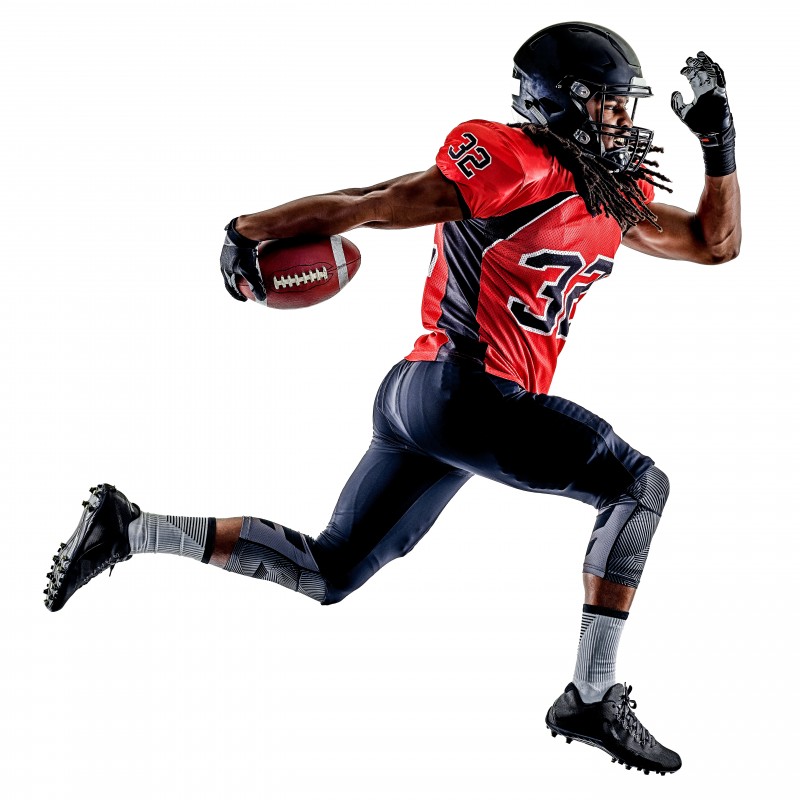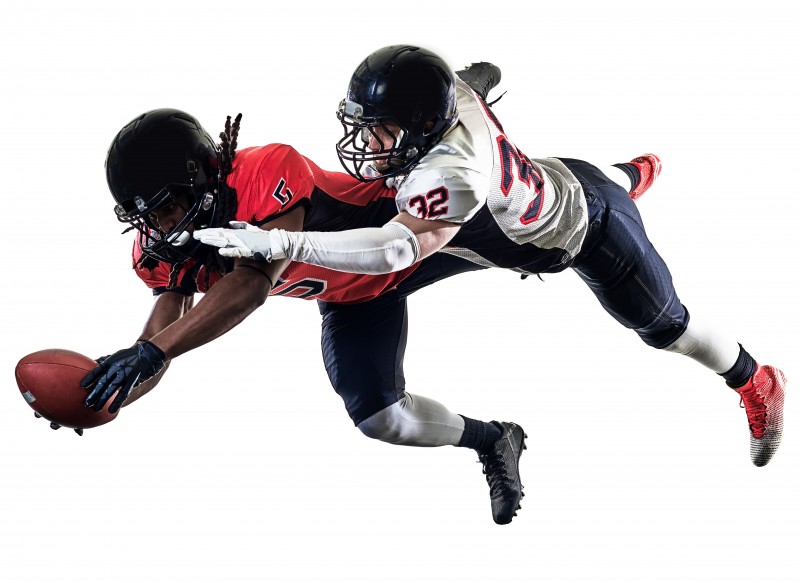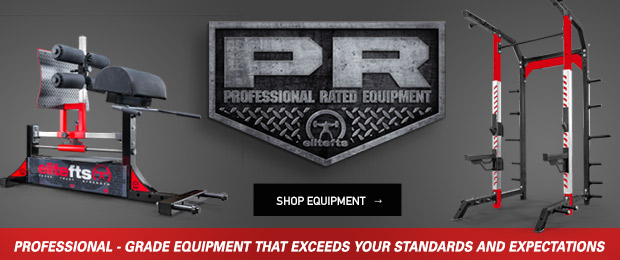
One of the primary functions of a strength coach’s job is to serve the teams with which we work. This is not an easy task, considering that most of our superiors do not understand what we do or how we do it, and furthermore, have their own uneducated and ill-conceived notions of what they think we should be accomplishing. This goes for not only sports coaches, but administrators as well.
The previous article discussed our relationship with sports coaches. This article further demonstrates that relationship and also shows a similar lack of respect and misunderstanding of our role coming from the administration.
RECENT: Strength and Conditioning is Failing: Our Relationship with Sports Coaches
There are several questions posed in this article for which there is no response given. An explanation/response to these questions will be covered in detail in the fourth installment to this article series.
We Are Neither Respected Nor Valued
Without a doubt, we are not respected in the field of athletics. I have heard over and over again from sport coaches how valuable of a role we play for their team. Football strength coaches are absolutely glorified with many salaries well over $300,000, with some approaching three-quarters of a million dollars (including bonuses). But the actions of those around us speak much louder than what is being said. This includes sports coaches, athletic trainers, and administrators.
Of football strength programs that supposedly value strength coaches to such a high degree, how many decline to take the full five-coach strength staff to their bowl games? How many programs don’t even provide bowl rings to the entire football strength staff, instead opting to give bowl rings to administrators who do no more than run numbers from a remote location? We are glorified to such a high degree for 11 months out of the year but then are told to disappear when it comes time to celebrate the accomplishments of the team we have spent so much time and effort to help. This fact alone shows how much respect we have really earned from administrators since these are often administrative decisions.

betochagas © 123rf.com
Olympic sports coaches tell us how important we are and how we are an extension of their staff. But as soon as we have an unexpected injury or more losses than anticipated, they are ready to cut their ties. Coaches are up in arms as soon as something goes wrong. They blame us for everything saying that we are just running a football program.
Why do these things occur?
We Are Our Own Problem
Our job is to write programs for and coach athletes to develop the general qualities needed to practice for and compete in a specific sport. In addition to physically preparing athletes for their sports, we also help them develop basic life skills, such as accountability, responsibility, promptness, work ethic, leadership, respect for others, and the list goes on. However, our actions have gone further than that very simple concept. We are creating negative perceptions from our actions both within workouts and in other areas of our job as well. Coaches and administrators see this. Fans see this. And parents see this.
Unfortunately, many strength coaches have shown that we have interests other than the preparation of athletes. There is no good reason for strength coaches to turn themselves into showpieces at football games. I have seen coaches come out with gaudy jewelry, backward turned hats, wearing sunglasses at night games, towels wrapped around their necks, and sometimes all of these things worn on the same individual all at the same time — all in an effort to look cool. More outlandishly, I have seen coaches jumping up and down, creating scenes and being more immature than the players; coaches snorting ammonia in the locker room prior to games; and coaches constantly placing themselves immediately behind the head coach in order to get on TV. Quit being fools!
RELATED: Your Do and Don't Guide to the CSSCa Conference
We are professionals and need to conduct ourselves in this manner at all times. It’s not about us on game day — or any other time, for that matter. If we are being noticed by anyone other than those who need our attention, it’s probably not a good thing. Our focus should not be on how cool we are, but on the athletes and the teams we are trying to help.
What Is Our Official Title?
What should we call ourselves? It is no wonder there is a lack of understanding of what our job actually is by sports coaches and administrators when there is an apparent lack of consistency of what we want our title to actually be. Read the options below to choose what you want to be considered:
- Strength and Conditioning Coach
- Director of Strength and Conditioning
- Director of Speed, Strength, and Conditioning
- Head Strength and Conditioning Coach
- Sports Performance Coach
- Director of Sports Performance
- Athletic Performance Coach
- Director of Athletic Performance
- Athletic Conditioning Specialist
- Performance Enhancement Coach
- Director of Skill Development
- Physical Preparation Coach
- Strength and Conditioning Coordinator
- Strength and Conditioning Consultant

ostill © 123rf.com
Every single one of the titles listed above were actually used by strength coaches at the collegiate level and can be seen on staff directories for schools across the nation. In fact, I was able to find one staff that couldn’t even manage to find a unanimous title among their own staff. Within this particular staff, they had:
- 1 associate athletic director of strength and conditioning
- 1 associate head director of performance enhancement
- 1 assistant athletic director of performance enhancement
- 1 assistant strength and conditioning coach/director of skill development
- 1 performance enhancement coach/sports nutritionist
- 3 assistant strength and conditioning coaches
- 2 assistant performance enhancement coaches
Yes, that was just one staff with seven titles for ten coaches. Title manipulation at its finest.
While we, as strength coaches, can’t figure out which name suits us best, others in athletics don’t seem to have an issue with their titles. Football coaches are football coaches and may be referred to by the position they coach. Basketball coaches are basketball coaches, soccer coaches are soccer coaches, and golf coaches are golf coaches.
I’ve never heard any debate on this. I’ve never seen debate over whether the head football coach should be called the “gridiron king,” whether the offensive line coach should change their title to “hogs coach,” whether a baseball-hitting coach should be titled a “home-run coach” or a “place-hitter coach,” or even whether a soccer coach should be referred to as the “leader of the pitch.”
On the administrative side, athletic directors never list themselves as “the top dogs in a suit” on the staff directory; nor is the compliance director listed as the “gotcha consultant.”
READ MORE: Are You Ready for the Inevitable?
We have tried to add the word “director” to our titles to make us sound more important, but unless we are an actual assistant (or associate) athletic director, it doesn’t have a lot of meaning. Manipulation of a title, as we do frequently in our profession, does not accomplish anything. From a technical aspect, we are directors in our own right, but the impression created is that we are trying to make ourselves sound more important than what we really are. While we do play an important role, we need this to be defined by what we do rather than by creating a self-promoting title.
If we can’t figure out and agree on something as simple as a universal title, why would anyone else give us an ounce of respect?
Annual Performance Evaluations
As stated in the previous article, it is very difficult to know that we are actually improving sports performance or preventing injuries. If we don’t know that we are doing these things, then how do we know we are doing our job?
Each year, we go through a performance evaluation. Depending on the procedures of each particular school, a strength coach may or may not do a self-evaluation before the actual evaluation from his supervisor.
In my previous position every year I filled out my self-evaluation, I wondered how each topic was something that pertained to my job as a strength and conditioning coach. The evaluations never evaluated what I actually did within my role as an assistant strength coach.
In my current position, I was actually responsible for outlining much of what I would be evaluated on. While better than my previous evaluations, I still do not feel that it objectively evaluates how well I perform my role.

ostill © 123rf.com
If you are an assistant coach, you have the advantage of being evaluated by the head coach, someone who actually understands what you do and how well you do it.
But if you are a head coach, your evaluation is most likely being conducted by an administrator who does not truly understand what our job is and what it takes to do our job.
So, what areas should we be evaluated on, and how do we objectively quantify how well or poorly we performed in these areas?
Furthermore, who should evaluate us? Should we be evaluated by an administrator who may not have any understanding of what our job truly is? How about a sports coach who has their own personal biases of what we should accomplish no matter how realistic those expectations may be? Should we be evaluated by the head athletic trainer or another member of the sports medicine staff since many of them feel we should fall under their umbrella?
EVALUATE YOURSELF: A Varsity House Gym Check-up for Strength Coaches
It would be difficult to expect a fair and honest evaluation from any of these groups of individuals. In all cases, their external biases and lack of understanding of our job and what it takes to do our job would result in an unfair and inaccurate evaluation of our performance.
Before any direction can be assumed in answering the questions above, we must first define what our job is. What role do we play in the training of athletes? The job of the collegiate strength and conditioning coach is to physically prepare teams for both, competition and practice. This is done by utilizing training means to develop the physical abilities of each sport. These abilities include maximal strength, power, speed, acceleration, agility, reaction, flexibility, and energy system development.
Beyond physical preparation, we play a valuable role in helping young adults learn valuable life skills that they will take with them beyond their athletic careers, including work ethic, attention to detail, accountability, respect for others, promptness, communication, etc.
The 9-to-5 Grind — Or Is It the 5-to-9 Grind?
I can easily say with full confidence that I have never seen an administrator or sports coach who arrives at work before 6 a.m. and works non-stop until after 9 p.m. on a regular basis, week after week, throughout a 16-week semester. That’s a 15-hour work day.

betochagas © 123rf.com
Those who can say they have done this certainly cannot say they do it on a regular basis. Sitting on a bus for six hours watching movies on a tablet or in a hotel room watching the Friday night football game cannot be considered the same as a strength coach’s hours even though they may be “on call.”
However, actually being present at work and actually working 14 to 16 hours per day nearly every day from Monday through Friday, including weekend hours as well, is a reality for many strength coaches. Meanwhile, administrators and sports coaches go home to eat dinner and spend the evening with their families without any further thought given to the strength coaches who only see their spouses and children for a few hours on the weekends because they are trying to contribute to the athletic departments and teams at their university.
Strength coaches do this because they care for the athletes of the teams they are trying to help. They do it because they are trying to help the athletes and teams at their school see success. They do it because that is what it takes to do the job correctly, and it still does not always measure up to the uninformed, unrealistic expectations of the coaches they are trying to help.
It is no wonder why many strength coaches have marriages that end in divorce and children who feel they have a parent that doesn’t pay attention to them. It is no wonder why after 15 to 20 years of doing this, many dedicated strength coaches say enough is enough and leave the profession. It is no wonder why very few strength coaches at the collegiate level actually retire as collegiate strength coaches.
FROM A COACH WITH 10+ YEARS OF EXPERIENCE: 12 Rules for Becoming a Better Strength Coach
Why is it that this type of workload is acceptable? I will answer this from two perspectives and provide a response to both below.
From the old strength coach train of thought: It is about being dedicated, paying your dues, doing what’s necessary, and that’s what we signed up for.
From the administrator’s perspective: I don’t think they all understand what it takes to do our job, nor do they care as long as the job gets done and the sports coaches aren’t complaining. In addition, many of them do not want to spend the money on more staffing.
With the exception of doing what’s necessary, the reasons coming from both groups are utterly stupid.
Strength coaches need to get over themselves. Working 80 to 90 hours per week is not a good thing. I can tell you with great confidence that I would be a better coach if I weren’t so fatigued from the number of hours I have to put in, combined with the lack of sleep that goes with the increased hours. More importantly, I would be a better husband and father if I was present at home for more than just a few hours a week. It takes a special and unique person to be a strength coach at the college level. We are all at least a little crazy, and some of us are a lot of crazy. And it takes a special family to love, live with, and put up with a strength coach.
Administrators need to wake up and gain an understanding of what is going on in their department. Strength coaches aren’t going to report their hours to HR because they have such a passion for coaching. But putting coaches in a position of having to work so many hours (out of necessity) because of improper staffing is still not right and is something that needs to be corrected.
Conclusion
We have failed to show the value and importance of strength and conditioning, which has caused us not to gain true and full respect from sports coaches and administrators. Beyond showing the value of what we do, we have hurt ourselves by how we act. We must embrace professionalism if we desire to advance our profession. The perception we create by how we act will go a long way in changing the current views of those around us. Our evaluations need to change so that they actually cover what we do in our role as a strength coach. We need this constructive criticism in order to improve. We work too many hours, and this needs to change. There are more young coaches looking for college positions now than ever before, but athletic directors see no need to sufficiently fill strength staffs. Until the NSCA convinces the NCAA to require that certified strength coaches be utilized for all strength and conditioning activities, university administrators will not be motivated to increase staffing.
References and Recommended Reading
- Coach G. (March 18, 2015). Understanding Your Role as Strength Coach.
- Frey, Jeremy. (July 18, 2018). So You Want to Be A Collegiate Strength Coach: Untold Truths of the Job.
- Hamer, Todd. (Aug. 31, 2017). Grading Professionalism in Collegiate Strength and Conditioning.
- Mann, Bryan. (March 3, 2015). The Mechanics of Recovery: Knowing When to Recharge.
- Mann, Bryan. (Dec. 5, 2017). Irresponsible Social Media Practices in Strength and Conditioning.
- USA Today. (2018). NCAA Salaries.
- Watts, Mark. (Oct. 10, 2016). The Evaluation of a Strength and Conditioning Coach: A Process-Based Profession in an Outcome-Based System.
David Adamson was the strength and conditioning coach for the Missouri University of Science and Technology from 2016 to 2018 and now serves as a consultant for collegiate strength coaches. Prior to Missouri S&T, he spent nine years as the assistant director of speed, strength, and conditioning for the University of Texas at El Paso (UTEP). He was involved in coaching at the university level from 2001 to 2018, including stops at Virginia Commonwealth University and Arizona State University. In addition to coaching, David is a student of strength who lives by his experience under the bar. He began lifting in 1993 and competed in powerlifting from 2001 to 2016. During this time, he competed in many different gear divisions, including raw, and in every weight class from 181 to 242.











The above link was emailed to me. Toward the end of the article it discusses NCAA recommendations to place strength & conditioning coaches under the supervision of the medical staff. I see this as an attempt to solve a problem that has been unnecessarily created.
Unfortunately, I also feel this is not a good direction for strength & conditioning. While the medical staff does have a sound knowledge in anatomy, functional anatomy, and physiology, they lack the knowledge and skills necessary for physical preparation. Their knowledge in these areas is only introductory. This results in a highly biased view of what should be taking place in within workouts, ranging from workout structure all the way to exercise technique. I have personally dealt with this many times.
The lack of knowledge in these areas results in the medical staff/athletic trainers being overly opinionated and outspoken based on their own personal opinions rather than actual knowledge. I have actually seen them attempt to use their "unchallengeable authority" to overrule coaches (both strength coaches and sport coaches alike) on decisions regarding HEALTHY athletes. This is NOT the place of an athletic trainer. To take this a step further, I have also seen the athletic trainers tell athletes that what the coach is having them do is wrong and then proceed to tell the athletes to do things a different way. Again, this is not the place of an athletic trainer. Actions of this nature undermine the competence of a strength coach and create internal problems that are left to the strength coach to resolve including putting athletes in a situation which they do not know whom to trust or believe.
By placing strength coaches underneath the medical staff, it could be likely that strength programs would become too overly focused on certain areas while neglecting other areas.
I do feel that strength coaches and athletic trainers should fall under the same umbrella, but should also remain in athletics. No, sport coaches should not have a say in the termination of any strength coach or athletic trainer. There needs to be an administrator with an intimate knowledge of physical preparation and medical needs that oversees the strength & conditioning and athletic training departments. This administrator would handle all hiring, evaluations, discipline, and dismissals for these two departments. I discuss this in greater detail in the fourth part to this article.